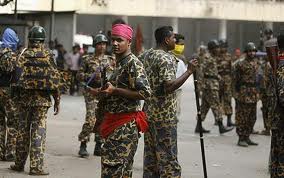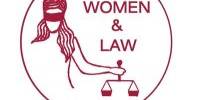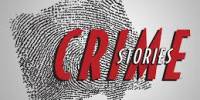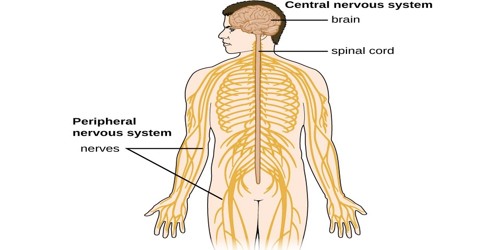Trials for Bangladesh Rifles Abuses
Military tribunal hearings against members of the Bangladesh Rifles (BDR) accused of participating in a February 2009 mutiny continued through 2011. Military courts convicted nearly 1,000 soldiers in mass trials that did not meet fair trial standards, among other things because the prosecution failed to produce individualized evidence against each detainee. In a single trial that concluded on June 27, 657 of 666 defendants were found guilty and sentenced to prison terms ranging from four months to seven years.
Several thousand other soldiers remain in custody awaiting trial in military courts, while another 847 have been charged under the Bangladesh Criminal Code. Some of those charged under the criminal code face the death penalty and many do not have lawyers.
The government did not investigate allegations of torture and possibly as many as 70 custodial deaths during investigations after the mutiny. Many suspects were denied access to legal counsel, particularly in the few months directly after the mutiny.
Civil Society
The government increased surveillance of Odhikar and in particular, Adilur Rahman Khan, Odhikar’s secretary advocate; threatening and harassing staff; and delaying approvals of projects.
After Nobel Peace Laureate Mohmmad Yunus, founder of the Grameen Bank, was removed from his position at the bank because he had exceeded the mandatory retirement age, there were mysterious attacks on his supporters. In May Sagirur Rashid Chowdhury, an accounts officer at the bank, was picked up outside the office by plainclothes men. When he was released his body bore signs of severe beatings. He said his abductors had asked him to issue a public statement withdrawing support for Yunus. In September six women directors and one former director of the board of directors of the Grameen Bank, all beneficiaries of the microcredit system, suffered intimidation by police who came and searched their rooms.
The government continued legal action aimed at intimidating the Bangladesh Center for Worker Solidarity (BCWS), a trade union group. After revoking BCWS’s registration one agency demanded that two union leaders, Kalpona Akhter and Babul Akhter, both facing criminal charges, resign as a precondition to renewed registration of the organization. BCWS has denied all allegations against it.
International Crimes Tribunal
To address fair trial concerns, the government in June 2011 amended the International Crimes (Tribunals) Act of 1973 to include some basic due process concerns, such as the right to the presumption of innocence and a fair and public hearing. But the law, established to prosecute those responsible for atrocities in the war of 1971, still fell short of international standards. The definitions of war crimes, crimes against humanity, and genocide did not conform to international standards and the government failed to amend the law to ensure due process. Defense lawyers, witnesses, and investigators said they had been threatened.
The tribunal in 2011 began proceedings in its first case, that of Jamaat-e-Islami leader Delawar Hossein Sayedee, accused of involvement in war crimes in the 1971 war.
Protection of Indigenous People
Bangladeshi authorities did little to prevent intensifying violence and discrimination against indigenous groups residing in the Chittagong Hill Tracts. There were repeated clashes between ethnic and religious minority groups and “settlers” who belong to the majority Bengali community. These clashes were in part a result of government failure to implement its agreement with the indigenous communities to protect their rights.
Deaths from torture
- Did 47 BDR personnel die whilst in custody?
- Has the government ordered any investigations into these deaths? If so, perhaps the government should publish the reports.
- Is it credible that all the 47 people died of natural causes when the family members consistently state that prior to detention their deceased relatives were in good health?
- Is the brother of Mozammel Hoque (Pilkhana barracks, Dhaka) lying when the report quotes him as saying that when he received his brother’s body from Mitford hospital the soles of his feet and the palms of his hands looked wrinkled and tender, that his neck and chin were covered in mud and that he was told by the person who conducted the bathing ritual that his hands and feet looked ‘decomposed … bloodless and shattered.’
- Is the wife of habildar Mohiudin Ahmed (Halishahar barracks, Chittagong) providing a false statement when she says that when she recovered her husband’s dead body it was ‘terribly bruised’ and that her brothers, who looked at the body more carefully, found ‘that the back area by the hip was completely black and blue, and there were severe lacerations on the legs and his upper back.’
- Is the Dhaka Medical College post mortem into Ahmed’s death which reportedly states that ‘Ahmed has been beaten on the lower half of his body’ also false?
Torture
- Is the wife of Nurul Amin (Rangpur barracks) a liar when she talks about how her husband Nurul Amin of the 34th Rifles Battalion was tortured? ‘He was almost incoherent when he described to me what had happened to him: electric shock to his genitals and ears, nails were pulled off his toes. He is almost blind now from what happened, and I think he is brain damaged.’ Is it also untrue when she says that when she first saw him following his detention, ‘He was lying bleeding on the floor, his face so swollen that he looked disfigured. I could hardly recognise him’?
- If what Amin’s wife says is untrue, why did he need four people to lift him when he was produced before the magistrate? Why did the magistrates immediately order him to be sent to the Dhaka Central Jail, where he stayed for a year?
- Is the son of Abdul Jail Sheikh (Pilkhana barracks) lying when he says that his father told him that he was taken to the Rapid Action Battalion office in Dhaka, hung upside down from the ceiling and beaten regularly, and ‘all the nails were ripped out of his fingers and toes and he was subjected to electric shocks’?
- If Abdul Jail Sheikh was not tortured, how come his legs have become paralysed since his detention, and he has no control over his bladder or bowel movement?
- What is the government’s response to the statement of the wife of Nasiruddin Khan (Pilkhana barracks)? She says that when she saw her husband in hospital, ‘I couldn’t recognise him. His body and face were all swollen, he had an oxygen mask on, both kidneys had failed’. She also says that one of the doctors told her that the kidney problems had been caused by electric shocks, that there were signs of torture all over his body, and that he had burning sores, broken legs, arms and fingers. When she was able to speak to her husband, she says that he told her that ‘he has been hung upside down from the ceiling, beaten and subjected to electric shock’ at the RAB headquarters.
- If the claims by Nasiruddin Khan and his wife (above) are all lies why can he only now walk with crutches? And why do his admittance papers to the kidney hospital state that he was taken there by RAB?
- Is the son of Nulamin Sardar (Pilkhana barracks) a liar when he says that his father told him that electric shocks had been administered to his genitals 5 to 6 times?
- What about the mother of Sepoy Al Masum (Pilkhana barracks), who says that her son told her that he had been severely tortured by RAB: he was beaten on his legs and knees, hung upside down and beaten on the soles of his feet. When she visited her son again after a subsequent remand, the report quotes her as saying, ‘He couldn’t walk; his eyes were swollen shut. He is 5 foot 9 inches tall and he looked easily a foot shorter than that. He told me that they kept giving his injections and he would faint, then more injections and then beatings.’ She also says that her son showed her his thumb which had been hammered flat. Is the government claiming that these are all lies?
- What is the government’s response to the wife and mother of Kamrul Hasan (Pilkhana) who saw him in Dhaka Medical College Hospital? He told them that he had been tortured by RAB, described electric shocks to his genitals and head, having had his head knocked against the walls, and the soles of his feet beaten?
16. If this is not correct, why was Hasan attached to a urine catheter, with his mother reporting seeing blood in his urine, and unable to walk?
Unfair trial
- How is it possible for a person to receive a fair trial on an allegation of mutiny when in the case of the 44th battalion, 675 accused are being prosecuted together in one courtroom?
18. Can 847 people, many of whom face charges that carry the death penalty, receive a fair trial when they are all being prosecuted together? - Why do so many of the accused BDR men not have lawyers? Without a lawyer, how can the accused get a fair trial?
20. Why do so many of the accused have no knowledge about the charges against them? - How can one lawyer provide proper representation to any of the detained men when he is acting for as many as 350 accused in the one case?
- Why is the prosecution not providing witness statements to the accused?
- Why were lawyers not allowed to ask questions in the BDR mutiny trials, and were only allowed to instruct the accused about the questions which they could ask?
- Why are the lawyers given very limited access to speak to the detained BDR men?
- Why are the accused not allowed privileged communications with them as allowed by the rules?
Those in the Bangladesh Rifles (since renamed Bangladesh Border Guards) responsible for the killings, violence and other crimes that took place on February 25 and 26, 2009 should obviously be held accountable; however, the process of accountability in a civilised country like Bangladesh should not include custodial killings, torture and unfair criminal trials.
One would like to believe that the government has a credible response to these questions but experience suggests that this is unlikely to be provided.
But perhaps the cruellest thing of all for those of us living in Bangladesh is that unless the government starts to acknowledge its responsibility for the human rights violations by its law enforcement agencies, nothing at all will change for the better.
















